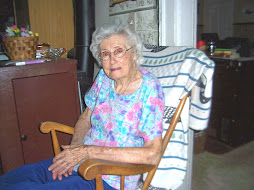By Richard Kendall
LAKESVILLE – Carpenter, muskrat skinner and trapper Ted Abbott, 68, has for the last 15 or 20 years collected tin cans, labels, tokens, boxes, sporting apparel, anything branded with the name of Phillips Packing Company.
“They were the largest food canners in the world,” he stated of the long-defunct Cambridge based conglomerate.
The late Arthur Abbott, Ted’s father, worked for Phillips Packing Company in the 1930’s, during the Great Depression, according to Ted Abbott.
“He stirred soup in big, huge containers,” Mr. Abbott explained.
“With a wooden oar, that’s what he used to stir. They paid him twelve and a half cents an hour.”
Arthur Abbott continued on until the late Saul Smith stopped to speak to him one day.
“Mr. Smith offered my father fifteen cents an hour to build him a house,” Mr. Abbott said. “So, he left Phillips to build the house for Mr. Smith. That house is still standing over in Andrews.”
“Dad never went back to working at Phillips and went on working as a carpenter,” Mr. Abbott said. “Dad trapped in the winter, like me, he loved to trap, had to do it.” Arthur Abbott passed away in 1972.
To begin to explain why he would go well out of his way to secure yet one more can, label or other Phillips memorabilia, Mr. Abbott recalled picking tomatoes as a boy.
“I used to get eight cents for every 5-8 basket I picked,” he recalled. “They were wooden baskets that held five eighths of a bushel.”
“You didn’t get too many the first picking of the year but after that I could pick 50 or 75 baskets in a day,” Mr. Abbott said.
“The tomatoes were called Old Ruckers and they were about the size of tennis balls,” he explained. “They were perfect size for canning.”
“Canning was big, big business in Dorchester County,” Mr. Abbott said. “Phillips had factories A, B, C, D, E and F in Cambridge. One factory canned tomatoes, another canned peas, another potatoes, and so on.”
In addition to the Cambridge facilities, Phillips cooperated with independently owned canning house operations throughout Dorchester County. Mr. Abbott shared several of the names of owners of canning houses, along with their respective locations:
“There were Baker Robbins and Sewell Simmons around here,” he recalled. “There was a canning house owned by Mr. Slacum directly across from Shorter’s Wharf, one at Meekins Neck owned by Willy Mills and another one at Wingate owned by another Willy Mills.” Others mentioned: a canning house at Charles Creek owned by Bill Carroll Insley and another in Church Creek at a location which later functioned as the Wire Belt Company.
“There was a time when just about everybody in Dorchester either worked on the water or for Phillips Packing Company,” Mr. Abbott estimated.
However, according to Mr. Abbott, things began to change for the company when the United States battled simultaneously the fearsome Nazi Germany and Japan and their allies, during World War II.
According to Mr. Abbott, Phillips shifted their primary attention to packaging the staple food of wartime U.S. troops: C Rations.
Stepping up to the plate to fill the void left by Phillips in providing the public with canned foods was the Campbell Soup Company, according to Mr. Abbott.
“People started eating Campbell’s Soup and never went back to Phillips,” he explained.
The following details were copied from the website at www.tourchesapeakecountry.com:
“In 1902 the Phillips Packing Company was started, and by 1929 was marketing more than 60 kinds of canned goods. However, the phenomenal reign of the company ended in 1957 when the company, facing competition and slumping sales, was sold.”
A longtime friendship with the late R. Lee Burton helped keep Mr. Abbott’s interest in Phillips memorabilia going.
“Mr. Lee collected all that,” Mr. Abbott said. “He and I used to trade our stuff back and forth.” Mr. Burton authored a book entitled Canneries of the Eastern Shore, published by Tidewater Publishing.
Over time, availability of Phillips memorabilia has evaporated. Currently, very few items are offered for sale, according to Mr. Abbott. Throughout Dorchester, the old canning house operations are long gone.
Still, in Cambridge, several of the sprawling, red brick and metal shells of buildings that were once Phillips factories have survived. Others have been torn down; several have been destroyed by fire.
“The Phillips company was a big part of Dorchester’s history,” Mr. Abbott said. “It’s gone now but we shouldn’t forget that it was part of who we were. That’s why I collect it.”
“I have friends who own some of those buildings in Cambridge,” Mr. Abbott said. “Sometimes, I like to go in and just stand there and listen. If you imagine, you can still hear those cans rattling.”
Tuesday, September 30, 2008
Subscribe to:
Post Comments (Atom)














No comments:
Post a Comment